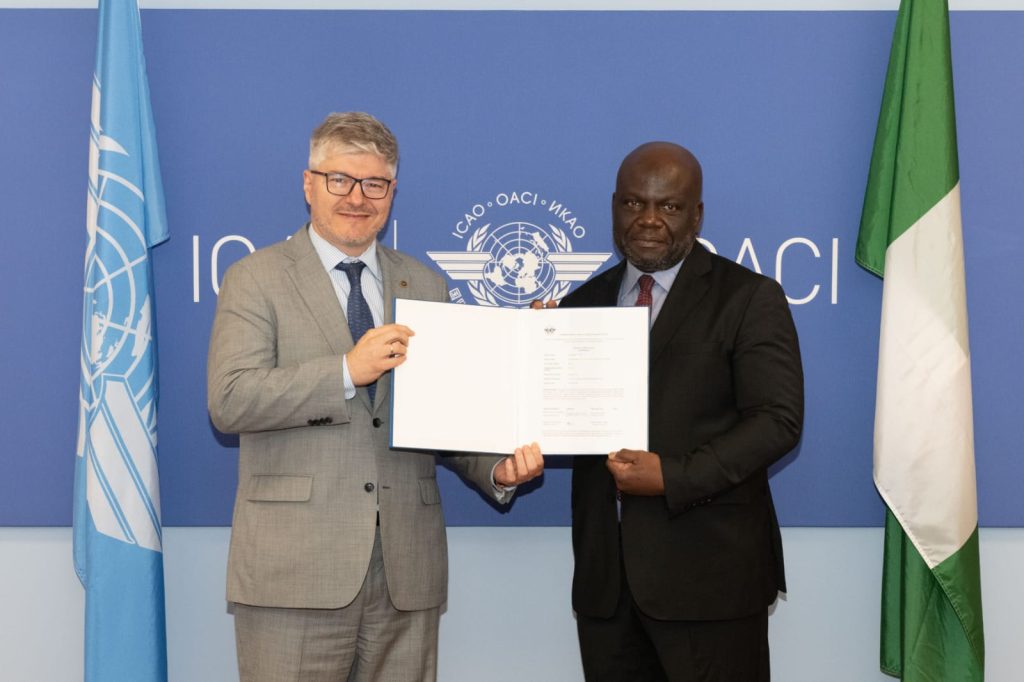
(From right): Director General of Nigerian Civil Aviation Authority (NCAA), Captain Musa Nuhu and International Civil Aviation Organisation (ICAO) Secretary General, Mr. Juan Carlos Salaazar signing the agreement during a recent visit by Nuhu to ICAO in Montreal
NCAA signs CAMP agreement with ICAO to stimulate industry growth
Nigeria Civil Aviation Authority (NCAA) has signed the Civil Aviation Master Plan (CAMP) with the International Civil Aviation Organisation (ICAO) in Montreal, Canada.

The development is part of efforts to continue to further reposition civil aviation in the country.

The signing of CAMP with ICAO, the regulatory body said, would enable the sector to attain its full potential, while also making significant contributions to Nigeria’s Gross Domestic Product (GDP).
A statement issued by the Director-General, Civil Aviation (DGCA), Capt. Musa Nuhu, said that it was high time the sector in the country played its key role of developing the nation through air travel.
Nuhu represented Nigeria at the signing ceremony, while the Secretary General of ICAO, Mr. Juan Salaazar, signed for the international body.
To ensure its full implementation and development to the industry in particular and Nigeria at large, Nuhu said that all relevant stakeholders within and outside the ecosystem would be carried along.
According to him, the aviation industry had played pivotal roles in the development of many countries around the world and Nigeria, with the biggest economy in Africa, could not operate in isolation from the others.
“CAMP is a process to plan for the short, intermediate, and long term development goals through implementing policy directives and to drive change and transformation.
“Civil Aviation Master Plan would be critical to facilitate the growth of the aviation sector and the deployment of required action plans to stimulate the development and growth of the industry, thereby acting as catalysts and enablers of the national economy.
“We need to have an orderly growth and development of the industry in tandem with our national aspirations. Economies of many countries depend almost entirely on aviation. Aviation played a significant role in the development of Dubai and Emirates is its global brand,” he said.
Nuhu also said that the partnership with ICAO’ would further lead to more direct and indirect job opportunities for qualified Nigerians in various fields.



